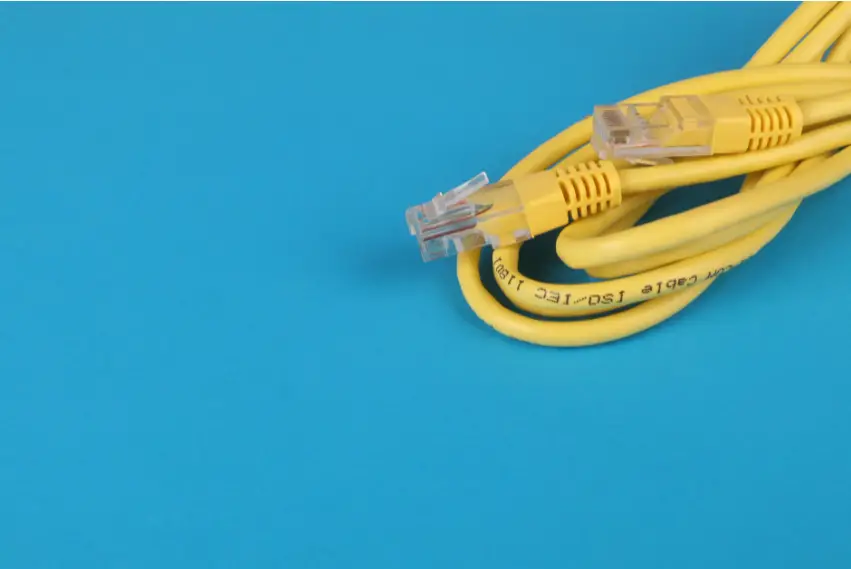Does VPN Work with Ethernet?
VPN or Virtual Private Network is a useful tool that has been developed to solve several issues with internet connection. Although people mostly see it as a locator changer service, the VPN is put in place to protect your online presence from third-party attacks when using public networks.
A VPN connection can be established via ethernet, dial-up, DSL cable, WI-FI network, or any other type of internet connection. VPN can work with all the mediums of connection and transfers that can carry IP packets. This means that for the VPN the type of connection is not important, as long as the IP packet can go through.
To be able to fully understand why the VPN is so important and what are its benefits, I will start by explaining the basic principles of how VPN works in the first place.
How Does VPN Work?
Without the use of a VPN on public networks, you are being too exposed and very vulnerable to third parties attacks. VPN’s main role is to hide your online identity and to remove you from the hacker’s target list.
Hackers are always looking for unprotected connections and holes in the security to steal, erase or compromise the data on a device. Their attacks are usually directed towards big organizations that are handling a lot of sensitive data. This is where VPN jumps in.
Basically, the VPN will redirect the IP address through a specialized remote server that is run by a VPN host. This will make your VPN server the source of your data, meaning that the original source could not be tracked, because this information is not available to your ISP (Internet Service Provider).
Like this, the ISP is not able to see the origin and the destination of the data you are sending or receiving when you browse the internet with a VPN. The VPN works like data encryption. If you don’t encrypt your data, you don’t have any form of even basic protection.
Why Should You Use VPN?
Besides protecting your data from outside attacks, there are several other benefits from using a VPN. The VPN offers secure encryption, meaning that if someone wanted to read your data, they would need a key to decipher the data on your computer.
This key is unique and it is not easily hacked. Another computer would take ages to decipher the key and read the data. This is why the security of your network is guaranteed when you use a VPN. All activities on public networks will be hidden when you use a VPN, as already explained.
However, the VPN is mostly used because you can actually hide your physical location by redirecting your traffic via a server that is in another country. This means that you are disabling data collection and pattern creation about your online behavior.
Most VPN servers do not store any data about your behavior, and the ones that do, don’t share the gathered information with any third party. Like this, you can easily avoid the collection of demographic data and creating statistical reports about your online presence.
Changing your virtual location is not useful only for hiding your data, but also for accessing data and information that has been made available only locally, for specific areas. The most common usage of this is a really naive one – people use it to access movies and TV shows on different platforms.
Most movie platforms, like Netflix or Hulu, have very regional content. This means that what is available in one country may not be available to the rest of the world. In a situation like this, people use the VPN to bypass this rule and to gain access to certain content.
VPN is of great use for those who work remotely, and the recent situation with COVID has made the world transition to remote work. When you are working from home, or any other remote location, you need to transfer security data from your computer to the company.
This requires a secure connection so the data can be protected. The best way to transfer sensitive data in this situation is to use a VPN to reduce the risk of losing the data in the process.
Ethernet VPN
There have been some concerns regarding whether you can use the VPN if you are connecting to the internet via ethernet cable, but these concerns are ungrounded.
As already explained, you can use the VPN regardless of the type of internet connection you have, so you can activate VPN even if you have a dial-up connection. You can also activate it if you are having a DSL connection, wireless or ethernet connection as well.
Ethernet VPN is very popular and is also known as EVPN. When enabled, it can significantly help you raise the efficiency of your internet connection. This applies to every organization where the build-up of daily operations is severe.
Over the years, companies tend to develop and implement various protocols for many different purposes. This is what is causing the build-up and eventually what is slowing down the network. The EVPN is capable of delivering end-to-end services with the highest possible speed.
EVPN is also offering a very comprehensive range of services, like E-LAN, E-Line, E-tree, etc. Although most of these services are also offered by disjointed technologies, it is good to know that EVPN can provide them as well.
Another perk of using EVPN is that it will help unify the control planes and segregate the data planes. EVPN is compatible with NVGRE, VXLAN, MPLS, and other segment routing and data-plane encapsulations.
To be able to use the EVPN, you need to configure your router first. This is where it becomes tricky – you have to make sure that your router has a line of defense against attacks.
Make sure that you don’t misconfigure the settings because then the VPN benefits cannot be exploited to the max. Only a properly set VPN service can help you achieve your goals – either data protection or location change (or both).

